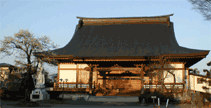  |
Lesson 17: It wasn't
red.
Click here for the kana version.
|
This lesson is a continuation of Lessons 14 and 16. Recall that Lesson 14 dealt with i adjectives and Lesson 16 dealt with negative i adjectives. Recall that in order to change an i adjective from affirmative to negative form, one changes the last i to kunai. In order to make the past
form of an i adjective, change the last i to katta. Remember
that the negative (nai) form of i adjectives are also i adjectives,
so you can change them to the past form in the same way. |
|
|
Example: akai akakunai omoshiroi muzukashii |
red not red interesting difficult |
|
|
|
| Examples: Kasa wa akakatta desu. |
The umbrella was red. |
| Shiken wa muzukashikatta desu. | The test was difficult. |
| Eiga wa omoshirokunakatta desu. | The movie wasn't interesting. |
| Sono hon wa atarashikunakatta desu. | That book was not new. |
| These adjectives can also be used to modify nouns. |
|
|
Examples: akakatta kuruma |
a car that was red |
| muzukashikatta shiken | a test that was difficult |
| atarashikunakatta enpitsu | a pencil that wasn't new |
|
|
|
|
Lesson 17 Vocabulary: akai -katta shiken |
red suffix for past tense i adjectives test (n.) |